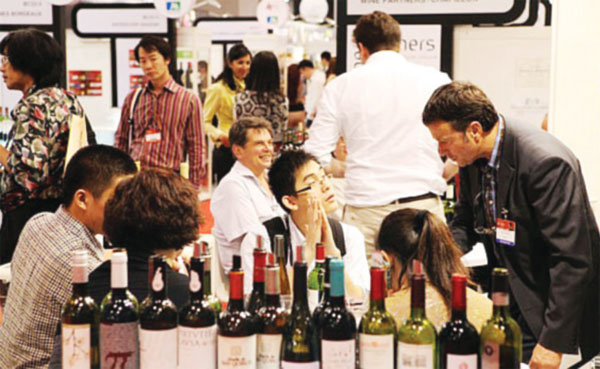Bonded for good
Updated: 2014-12-19 05:21
(HK Edition)
|
|||||||||
|
With all the flexibility offered, bonded ports serve as trading platforms for wineries and traders. Provided to China Daily |
Apart from wine market dynamics, the rise of bonded ports and zones is also a matter of interest for both traders and wineries.
As a relatively new model of trading, bonded ports are becoming more popular as wine trading platforms on the mainland.
"Compared with other categories, alcohol products enjoy favorable bonded zone policies in China. In principle, one can unload wine at any port as long as they are open to imported goods," said Wayne Hua, president of Global Wine & Spirit Super Center at Dalian Port.
Hua said importers can receive wine as far inland as Wuhan port, Central China, as long as the boats are able to reach there. "This brings a lot of convenience to importers, because wine has rather strict requirements on logistics. A particular port usually only covers the area around it."
Trading volume of each port depends on local demand.
That is why even Hangzhou, a river port near Shanghai, imports 15 million bottles a year, three times more than the volume handled by Dalian, a sea port targeting the three Northern provinces, Hua said.
The merit of bonded zones also lies in flexible customs arrangements. Instead of going through the clearing process first, imported wine can get into traders' warehouses at bonded ports the day they arrive, and be cleared later.
"This helps reduce loss significantly," Hua pointed out. Customs clearing takes 15 days on average, during which storage conditions could be poor. "Dealing with a kind of sensitive product, it could be disastrous," he said.
The two peak seasons for wine business at Dalian are September, in the lead-up to the Mid-Autumn Festival and National-Day Holiday, and the year end - targeting New Year and Lunar New year. "Wine for September arrives in July and August, when the midsummer heat damages the quality. In winter, outdoor temperature can reach -17 C in Dalian. Almost one in four bottles would explode," Hua said.
Meanwhile, bonded zones also help release liquidity pressure. With warehouses in the zone, traders and wineries do not need to pay tax until they deliver to buyers. "Given that the comprehensive tax rate for imported wine is more than 48 percent in China, this arrangement is very handy," Hua said.
With all the flexibility offered, bonded ports serve as trading platforms for wineries and traders, he said. Traders based in bonded zones can import one large batch of wine and sell gradually without tax pressures.
"In bonded ports, more and more buyers find it convenient to book a variety of wine in small amounts," Hua said, adding they can build diversified catalogs with a relatively small amount of capital. "Buyers can try a bit of all kinds. If one sells to night clubs, they can have more sparkling, whereas those with big enterprise clients can order more from the higher price range. This wouldn't be possible outside the zone."
(HK Edition 12/19/2014 page6)
